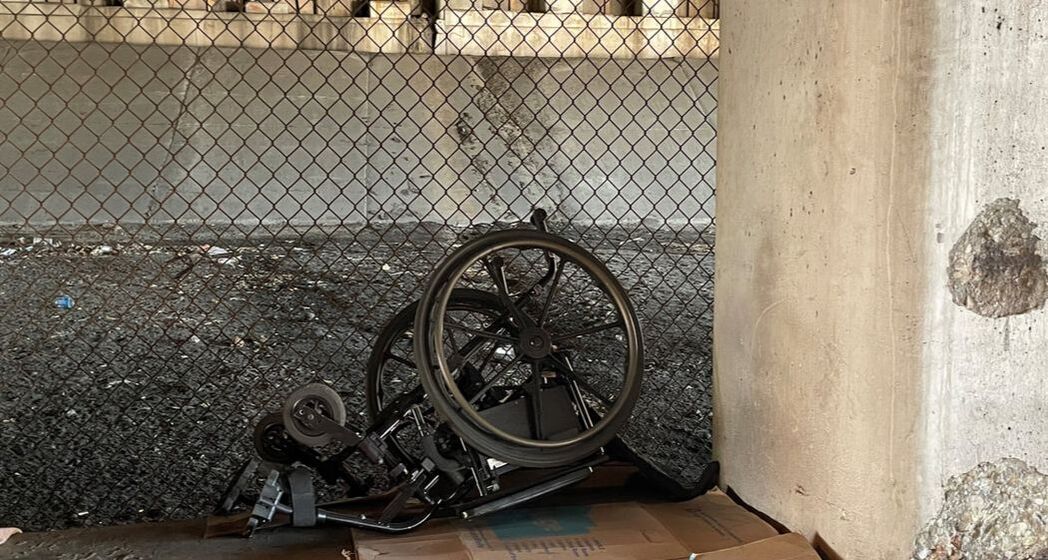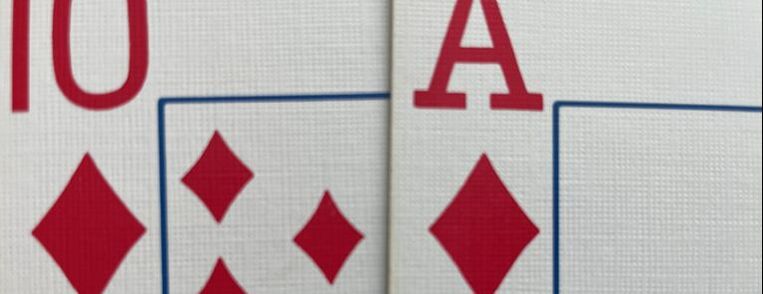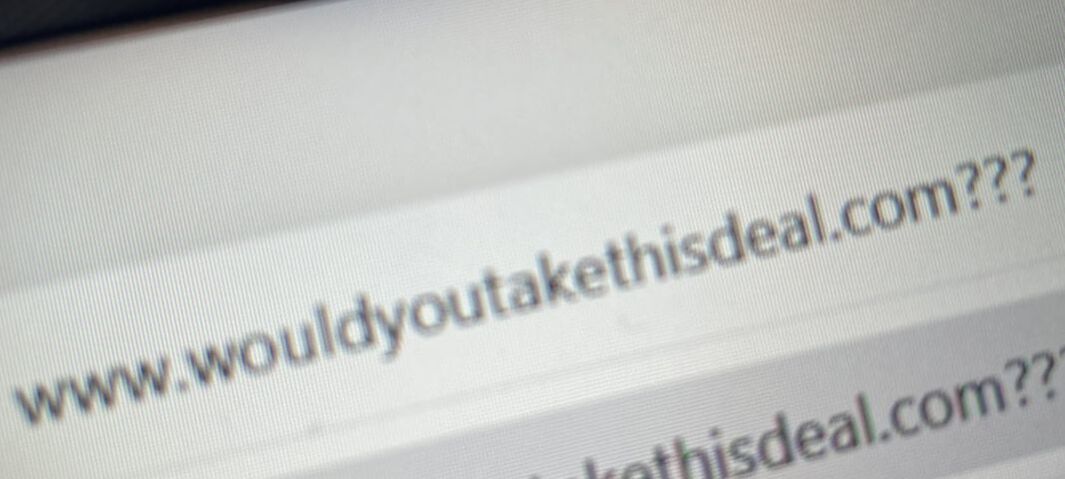 I ran into a beggar on LaSalle Street the other day and I was about to suggest to him that he get a job, but then it occurred to me he has a full-time job already. Because, really, how different is his workday from the guy who stands in front of the donut shop with a sign announcing free coffee when you buy a dozen donuts? Well, lots of ways, as it turns out, and none of them is particularly good. Both the guy hawking donuts and the beggar are outside all day, through rain and snow and heat and gloom of night, subject to the vagaries of weather and the catcalls from passing motorists. Both of them have limited advancement opportunity and neither is getting a pension. But the guy in front of the donut shop gets minimum wage, or maybe $300 per hour in the current labor market, and nobody yells at him if he goes into the store to use the bathroom. Also, sometimes, free donuts. The beggar, though, is in sales, not marketing, and he’s working strictly on commission. His product is an intangible, but there’s a real delivery of value when someone makes a purchase. For me and everyone else who coughs up a buck or two, the beggar gives us the opportunity to feel better about ourselves. We get to think of ourselves as good people, moral, charitable, upright, the kind who get into heaven. Hey, God!! Are you watching this or what? Of course, he’s also selling hubris, which is always in demand. We all think we live in God’s grace, but we also want to believe we aren’t like him because he made bad choices and we didn’t. And, man, are we kidding ourselves on that one. At various points in my life, I was probably three drinks or two hours at a slot machine distant from a life on the street. I have no idea what my tipping point was, but I have no doubt I've been on the guard rails more than once over the past decades. When I see a beggar, though, I can comfort myself with the notion that he is weaker, he made worse choices, he is less than I am. All this emotional healing is very cheap, a virtual steal in today’s market. For the same money I’d spend by saying Venti instead of Tall, I can feel so much better about myself, about my virtue, about my guaranteed mansion in the afterlife. And what does the beggar get in return for his service? Not nearly enough. He puts in his eight or ten hours a day, delivering salvation of sorts, while the fussbudgets at Streets and Sanitation are busily tearing up his space under the expressway and putting up a fence to keep him from sleeping there tonight. He never knows if he’ll make any money on any given day, but he does know he’ll have a hard time finding a place to go, when he needs to go, and there are no free donuts at the end of his shift. He’d have it a lot easier if he could get a “real job,” but that’s a huge lift for a guy with no clean clothes, no place to take a shower and, even worse, a deteriorating ability to communicate. When you’re standing on the street all day and you have no real conversations, your voice can drop to a whisper and your vocabulary atrophies. In spite of those challenges, I see this guy every time I walk past his office, because he’s working very hard at his full-time job. On LaSalle Street the other day, I handed a beggar three bucks and he gave me both moral absolution and a blog post. I should have given him a five. Next time you see a beggar on the street, make one of the best purchases you can make in a day. Before that, though, be sure to click here to subscribe.
1 Comment
 There was a gunfight on the street a couple of blocks from our condo, and everyone is still panicked about it. As gunfights go, it was pretty special, with at least two cars racing down the street and people firing at each other from the windows. I missed the excitement, though, because I was having dinner at an outdoor restaurant about 1,000 feet away and it was too nice a night to take cover. Yes, I noticed the news helicopters overhead and, yes, I heard the sirens as cop cars headed to the scene, but this is the city and you don’t run unless the perps are closing in on your 20.* That doesn’t necessarily make me brave, although I won’t object if you all say I’m your hero. Rather, it’s a reflection of the fears I’ve chosen to focus on most and the ones I have exiled to the overstuffed attic in my brain. In other words, I’m just like everyone else. Most of us have some kind of phobia that we picked up in childhood and a few of us go through a truly scarring trauma that affects our panic buttons, but we also choose the bogeymen to fear once we become adults. Almost without fail, what we’re afraid of says more about us than it does about the threats themselves. I took part in a conversation a few months ago with a cop and a bunch of people I know, discussing the violence that seems to be running rampant in Chicago. Shootings are up, flash mob robberies are up, murders are way up, but the top concern of the people in our group was carjackings. Naturally. That’s because they don’t think they’ll be in an area where gun crimes are a big deal, but they all drive nice cars. They might argue that they’re being realistic, placing their concern where they are most at risk, but “most at risk” is not really a thing. Their odds of getting shot are about 0.0000001% and their odds of getting carjacked are 0.00000011%, so we’re not really talking about the risk, are we? For most of my friends and neighbors, the risk being victimized by random violence is very, very low; so low, in fact, that it approaches zero for most of us. That doesn’t mean we’re immune and it doesn’t mean we shouldn’t be careful, but we’re about 8 zillion times more likely to be hit by a car while we, or the driver, is staring at our cellphones than we are at risk of getting carjacked. In spite of that reality, I know people who are afraid to come into the city for dinner or a show, but they have no problem walking through a mall parking while they and every driver are staring at their screens. Consciously or not, we choose our fears and, once we’ve made that choice, we fixate on any bit of news that tells us we’re correct. That has been the prevailing theme over (almost) the past two years, as we scrolled through the menu of items to panic about in the pandemic. Am I afraid of Bill Gates or Donald Trump, new viruses or new vaccines, QAnon or government mandates? Am I more afraid of a ventilator or a bureaucrat, big Pharma or infected bats? Because, really, whatever fear is driving me, or anyone, it’s our demon of choice. We can argue that our fears are realistic, and maybe some of them are, but they’re also a lot like our wedding vows. We choose on this day to live with this specific fear as our most beloved, and to forsake all others. Absolutely, there are a ton of risks in this world and, one day, one specific threat will prove fatal to each of us. For most of us, though, it won’t be the one we dwell on every day. We love using terms like perps and “your 20,” because it makes us sound like we’re tough and know what the heck we’re talking about. What other ways will we try to look much cooler than we really are? Subscribe now to find out. (10-20, btw, is police radio code for location.)  My friend was explaining his new system for beating the house at blackjack and the dealer did his best to keep a straight face. The explanation took a long time and I think he mentioned paradigms and stochastic chains more than once, but the gist of it was crystal clear. Since the odds of winning/losing at blackjack are close to 50/50 for good players, he would essentially double his bet after a losing hand and halve his bet after a winning hand. Now, everyone knows the odds of heads or tails in a coin flip are 50/50, but everyone also knows that coin flips don’t alternate heads/tails/heads/tails in a set pattern. For my friend, though, this was exactly the pattern he was counting on as his path to huge winnings. I forget the exact words, but the dealer said, essentially, “That’s a Number Three,” as if it was one of the “systems” so basic that it counted among the top trio that would-be winners brought to the table. My friend insisted it was more sophisticated, but I’d side with the dealer on this one. Maybe it’s some movie we watched as kids or maybe it’s the same hubris that screwed things up for Icarus, but we all seem to think we can handle situations better than the people who deal with them on a daily basis. Paradoxically, we seem to be most confident of our abilities in the areas we know the least. We know more about baseball than the manager who’s running the team and we know more about medical science than the people with 27 initials after their names. We know more than the generals who lead our troops, more than the cops who patrol our streets, more than the dealer at the blackjack table… One reason we think we could do their jobs better is that we only focus on their screw-ups, and only in hindsight. Whether they’re updating the voice mail system (to serve YOU better) or fighting pandemics or solving crimes, our top professionals treat us to daily flood of bonehead moves. We don’t pay much attention when they get things right, since that is their actual job. It’s pretty much invisible, as it should be, when the calls go through, the drugs don’t kill people and the cops get the right guy. When the trains derail, though, we know exactly how we would have handled it better, even if we have no idea how to handle it at all. We skip over the 500 steps and the 4,000 details they handled right and fixate on the big, gaping, neon-lit boner that will define their legacies. That’s fair, in a way, since it goes with the territory for people who want to be paid and respected for their expertise. Particularly for those of us who follow their guidance, most of the time, relentless mockery is the tradeoff we demand for following them down the wrong path. Still, we give ourselves much too much credit when we think we can do all the complex jobs better than the people who do them every day. Whether it’s a blackjack dealer or a cop or a short-order cook, being in the business provides a degree of insight that our occasional visits cannot match. Every so often, I’ll read some article about young people having an inflated sense of their talents, which almost invariably leads to a discussion of the participation trophies they received as children. The writers usually make a compelling case about all those Gen-whatevers, but I can’t help but wonder about the same flaw in older, but not wiser, folks like me. What’s our excuse? You should never split a pair of Kings, but it’s always a good idea to subscribe to Dad Writes by clicking right here, or right here, or right here.  Not that anyone offered it and it’s not like we have a choice anymore, but would you take this deal? If you were offered the internet, today, knowing what you know about its evolution/devolution, would you want it or would you want it banned? Everything in life is a double-edged sword, of course, so there is no reason to expect any new thing to be 100% for the good, but somehow I think the internet is much closer to a 50/50 balance, possibly worse. I must admit that I was skeptical of the whole internet thing when it started. Our firm represented a ton of start-ups on the internet and, while there were a handful of true visionaries in the early days, most were snotty kids with Foosball machines who sneered at my questions about how they planned to transform clicks into dollars. Many went public, almost all folded soon thereafter, and I became increasingly convinced that nobody would ever make any money from this thing. One of my first encounters with a civilian on the internet was some guy writing 5,000-word screeds about how he hated his neighbor. I underestimated the potential, of course. First, companies learned to generate revenue selling advertisements to reach us and then they pivoted to selling us directly to advertisers, developed anti-social media, found new ways to track and target us, and convinced many of us that our participation was somehow free. And here we are, today, with the incredibly mixed bag of costs and benefits from our “free” participation in this global rager without guard rails. So, would you accept this deal, knowing that it includes:
So, net-net, has the evolution of the internet made our lives better or worse? Do we gain more or lose more as individuals and do we gain more or lose more as a society? Certainly, the cost/benefit balance could be greater or lesser for any of us individually versus all of us as a nation, but none of us is experiencing the online world as 100% good or bad. So, where would you come down on the internet? Boon or bane? Of course, this blog is the only corner of the internet that is 100% good, possibly even perfect. Click here to subscribe and enjoy the most redeeming feature of the internet every week. |
Who writes this stuff?Dadwrites oozes from the warped mind of Michael Rosenbaum, an award-winning author who spends most of his time these days as a start-up business mentor, book coach, photographer and, mostly, a grandfather. All views are his alone, largely due to the fact that he can’t find anyone who agrees with him. Archives
January 2024
Categories
All
|
 RSS Feed
RSS Feed